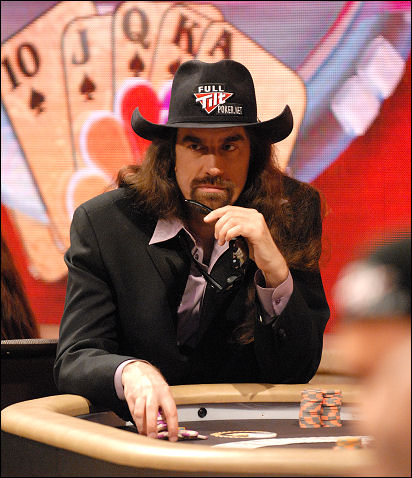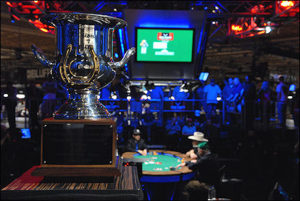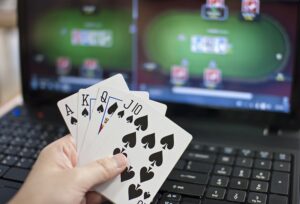ONLINE POKER LEGAL AND POLITICAL OPPONENTS…PART 1

This is the first of a multi-part examination of the issues on-line poker faces in the US. LasVegasVegas investigative journalist Gene Bromberg has spent countless hours researching the problems and uncovering the truths, half-truths, and outright lies employed by the opposition to the legalization of on-line poker.–Editor

This past week the Poker Players Alliance engaged in a major lobbying campaign on Capitol Hill. Over 100 members of the PPA, including such well-known players as Chris Moneymaker, Howard Lederer and Annie Duke, spoke to lawmakers in the hopes that Congress will take steps to legalize and regulate online gaming. But even though the Unlawful Internet Gambling and Enforcement Act was passed thanks to some parliamentary sleight-of-hand by former Senate Majority Leader Bill Frist, reversing that law will be a tall order. As Lederer said in answer to a question about getting a new law passed, “I think it’s very difficult to unring a bell.”
Poker players not only have to deal with resistance and inertia in Congress–there are also powerful forces arrayed against the game. And in the media coverage of the PPA’s lobbying efforts, we find that little things like facts, honest analysis, and logic don’t seem to matter to poker’s opponents.
In the Marketplace piece where Lederer was quoted, there’s also a quote from David Robertson, who belongs to a group called the National Coalition Against Gambling Expansion. Robertson’s quote is rather to the point: “It (internet gambling) is the most addictive form of gambling ever invented.”
Robertson gives no evidence to support this claim, and perhaps the Marketplace reporter didn’t bother to ask. So I visited the website for the National Coalition Against Gambling Expansion to see what info they’ve posted there. After clicking the “Internet Gambling” tab on their home page you find a series of articles and studies gathered together under the headline “The Perfect Storm of Harm”. In the opening paragraph is a sentence that says, “(Internet gambling) brings together all of gambling’s addictive power and mixes in the greatest potential for crime, corruption, and economic instability”.
The thing is, if you click the tab on the NCAGE home page for “Internet gambling”, you get a lot of links for articles and studies arguing against slots and other machines you’d find in a casino. NOT online poker (or any other online gaming). According to the NCAGE, your home computer and a slot machine are the same sort of gizmo: “Internet games have the ability to provide all the sights, sounds and scenarios of traditional slot and video poker devices, and do so at the stroke of a key.”
To say that there is no difference between playing a slot machine in a casino and playing poker in your living room is somewhat ridiculous. It’s also a stretch to say that gambling and drug abuse are equivalent, but the NCAGE goes out of its way to equate gambling addiction to drug addiction, and ends up tying itself into rhetorical knots. One of the opening sentences of the “Perfect Storm” article says, “Gambling machines addict victims much faster than other forms of wagering, earning electronic gambling machines the title of the ‘cracked (sic) cocaine’ of gambling.” The NCAGE home page itself rotates a serious of quotes from anti-gambling people and one of those quotes comes from Dr. Robert Breen, a clinical psychiatrist. Dr. Breen is quoted on the NCAGE site as saying, “The crack cocaine of gambling is the Video Lottery Terminal…(in reality) a video slot machine. It’s not your grandfather’s slot machine. It’s not a mechanical slot machine. This is a 21st century computerized predator…the most addictive form of gambling in the history of man.”
Thing is, one of the studies that the NCAGE uses to support their anti-gambling stance was conducted by Dr. Breen (and Mark Zimmerman), and that study says nothing of the kind. In fact, of the gambling-crack analogy, the study says the following:
“Concerned parties have been quoted in the media, referring to gambling machines as the “crack cocaine” of gambling, because people develop gambling problems so rapidly following initiation to machine gambling…(W)hile the juxtaposition of crack cocaine and gambling-machine addiction makes for a sensational sound-byte, there has never been any empirical data presented to support the idea that machine gambling is more rapidly addicting than other forms of gambling.”
Their study was conducted to determine if machine gaming was indeed more rapidly addicting to people who are pathological gamblers. Not to the average person, mind you, but people who sought treatment for gambling problems on their own. What did the researchers determine in the end?
“The data presented are limited in several ways. First, our subject sample is limited to patients seeking treatment, and thus not representative of PG’s (pathological gamblers) in general. Second, although we attempted to maximize the validity and reliability of the data by confirming self-reported information with an interview, we still had to rely on retrospective recall. Third, the data merely shows the hypothesized association between gambling forms and the latency of PG-onset. The causal contributions of the features of the machines, the psychological features of those who choose machines, or the convenience, availability, or social acceptability of different forms of gambling cannot be specified.” (italics mine)
There is some interesting analysis in the Brown study that is worth considering (that gambling machines provide an unthreatening way to play, that they reinforce gambling behavior by providing small wins with corresponding flashing lights and noise that encourages more play). But in no way can it be said from this study that gambling machines are as addictive as crack cocaine. The NCAGE itself says that the number of gambling addicts is around 1.5 to 2.5 percent of the population. If those numbers were indeed correct, that means that between 97.5 and 98.5 of people could drop some money in a slot machine (or play a few hands of online poker) without developing a gambling problem. Contrast those numbers to the expected number of people who would become addicted if they tried crack cocaine a few times.
The Brown study also explicitly states that some forms of gambling actually involve the forbidden “s” word–skill:
“It is a mistake to conceptualize gambling as a homogenous activity,” the study says. “Different forms of gambling vary importantly in terms of stimuli and features that contribute to the experience of the players. For example, many slots players describe the machines as reassuringly hypnotic. The visual stimuli, the repetitive pattern of betting and outcome, and the chance to withdraw into one’s own world are features that may contribute to this perception…
“In contrast, the cards or sports bettor may view betting as an activity that can be intellectually mastered. A sports bettor may spend much of his/her time exchanging opinions with other players, or poring over statistics. In this case, the activity may be seen (rationally or not) as a means to an end, i.e., winning money…(E)lements of skill can affect some of the more traditional forms of gambling (e.g., card games, handicapping horses or sporting events).”
I could spend a month digging into claims made by anti-gaming organizations (and I may do just that), but I have one last example to bring up. A minor quibble in the big scheme of things, but still–one of the quotes posted on the NCAGE page is from George Washington. The Father of our Country writes to his nephew that he should “avoid Gaming”, which is “the child of Avarice, the brother of inequity, the father of Mischief.” Washington, in addition to his other talents, had a fantastic writing style. But according to the NCAGE page, Washington said this on January 15, 1873. When, of course, our first President died in 1799. Like I said, no big deal, but when you’re off by THAT MUCH…it doesn’t look good.
I want to stress that I’m not arguing that gambling addiction doesn’t exist, nor that it isn’t a serious problem. But I am arguing that banning an activity that can be safely enjoyed by the vast majority of the population isn’t the way to address that problem. A prohibition on gambling isn’t likely to eliminate problem gambling, not when you can buy lottery tickets at any supermarket or gas station in the country, and when every state seems to be turning to gaming as a way to resolve budget shortfalls. Gambling is part of the fabric of our culture–we need to abandon the hypocrisy of the status quo, stop trying to legislate morality, and honestly address what problems gambling causes in our society.







 Beranda
Beranda
 Whatsapp
Whatsapp
 Daftar
Daftar
 Promosi
Promosi
 Telegram
Telegram